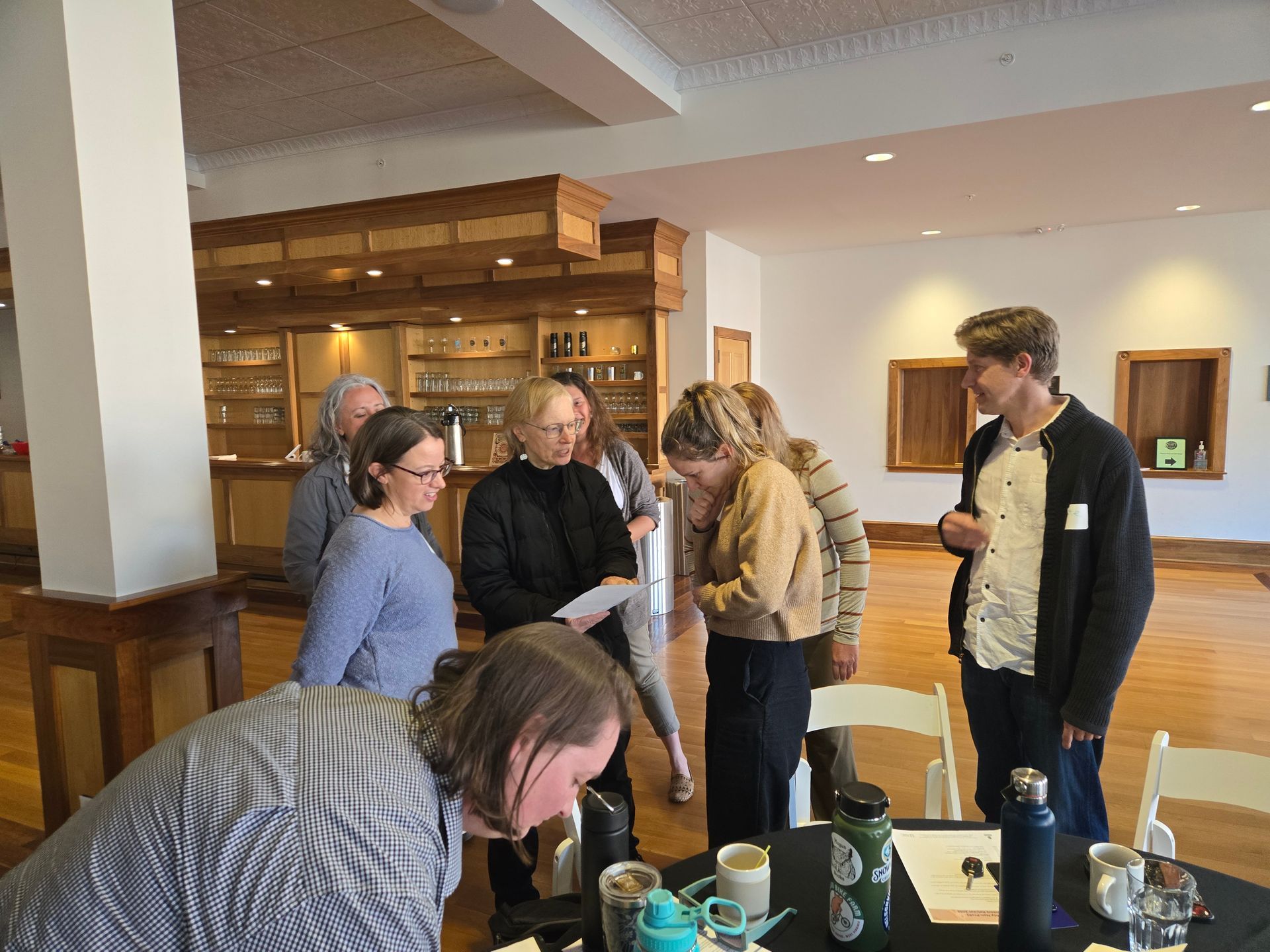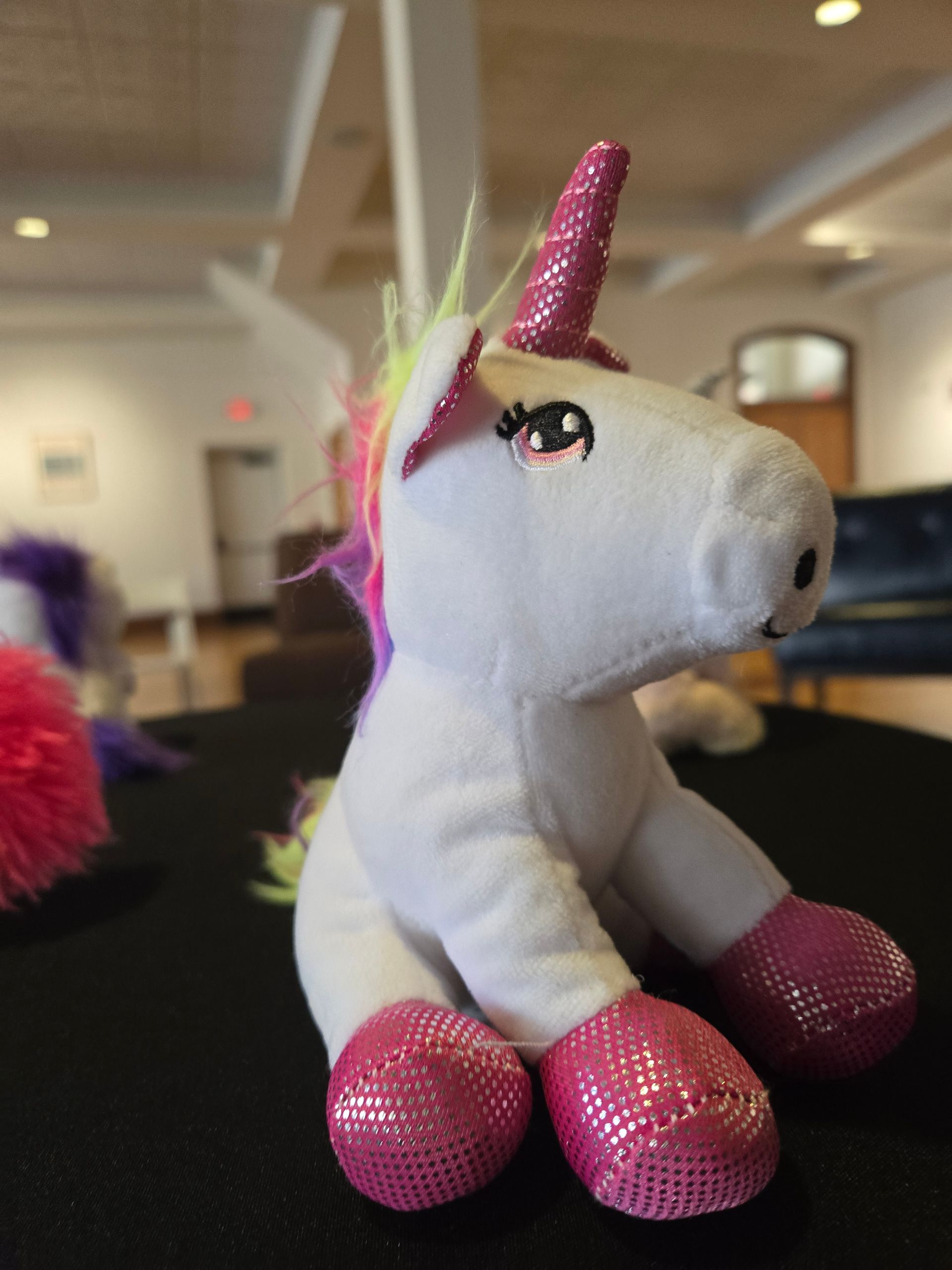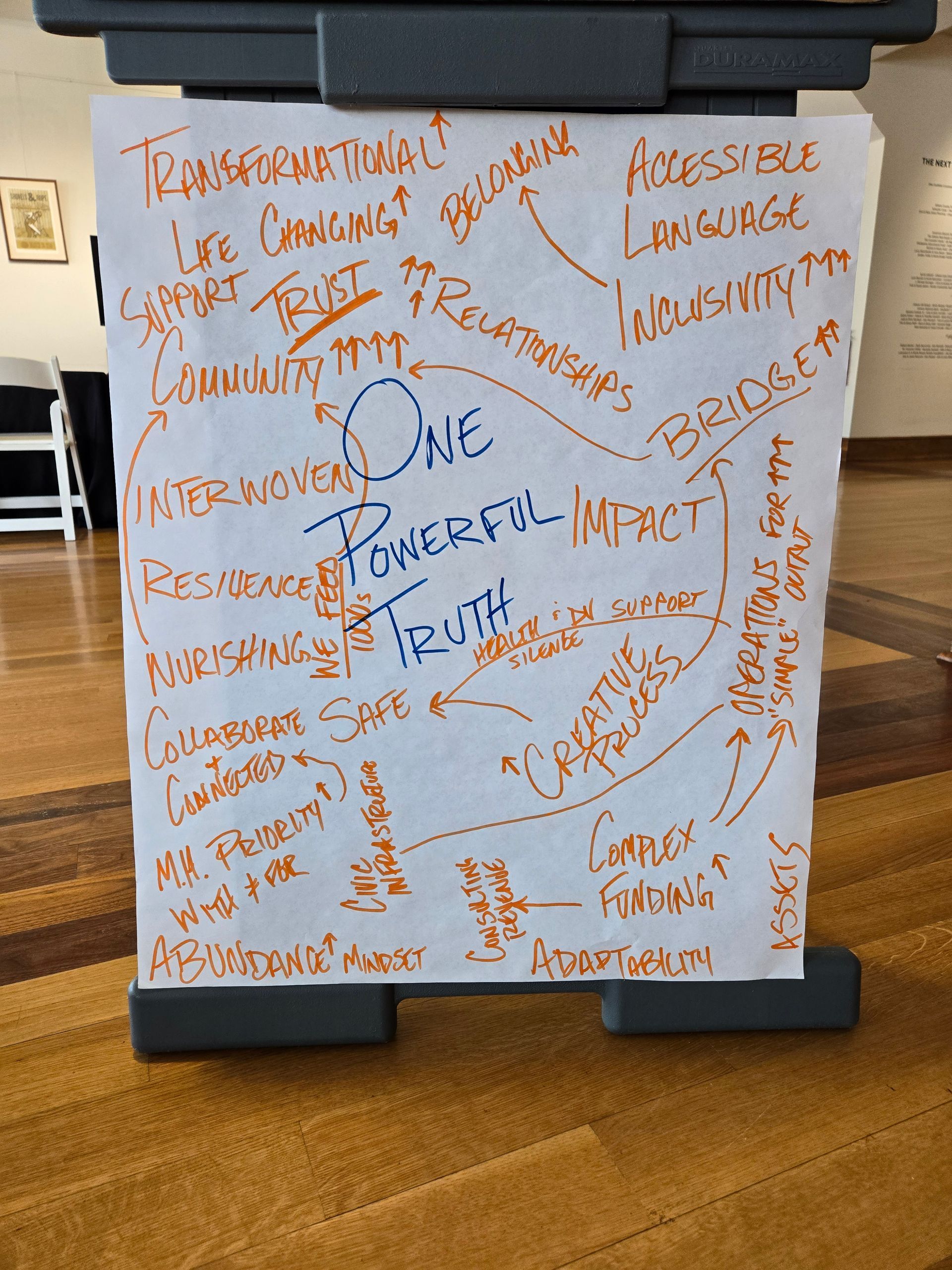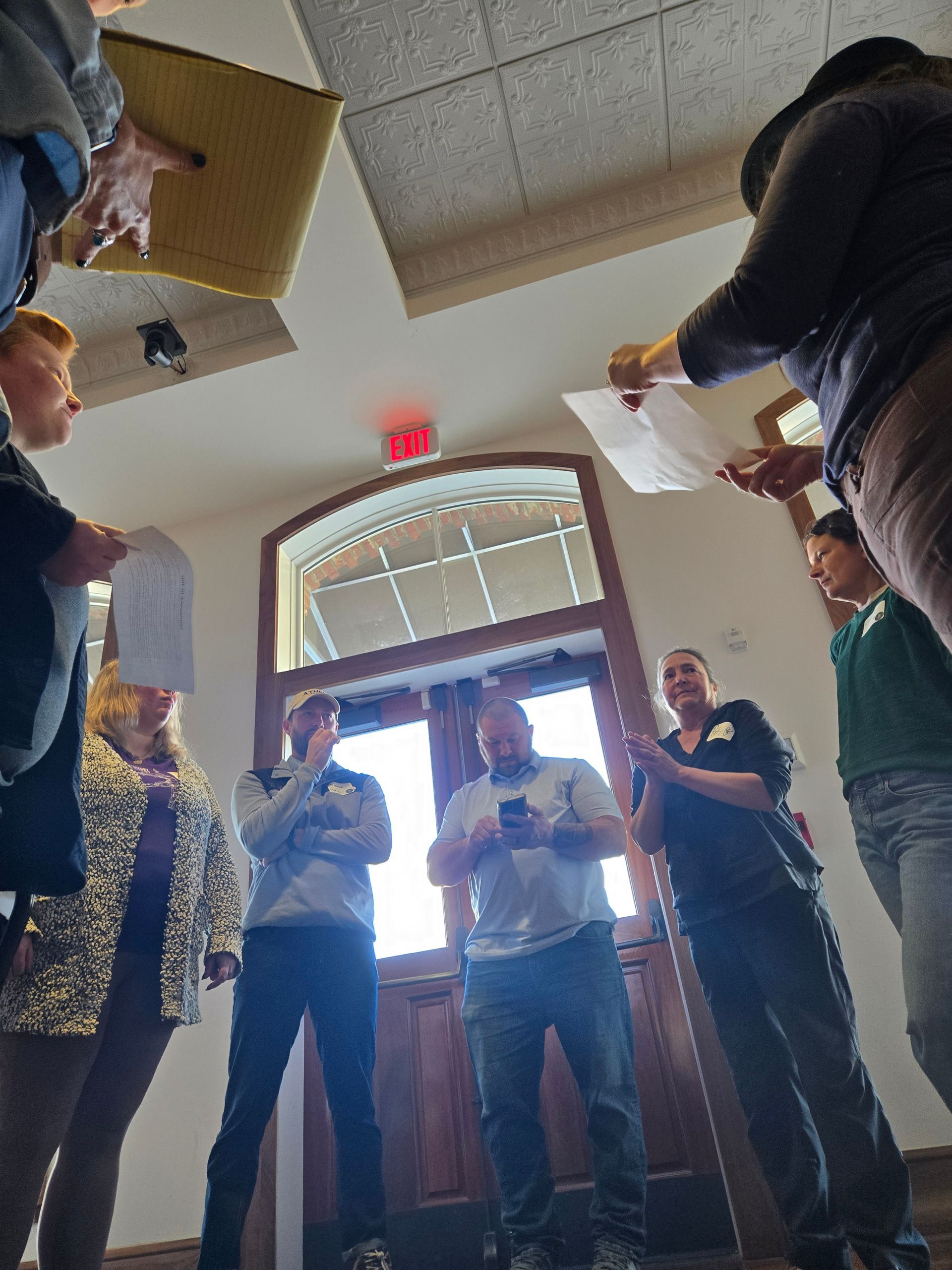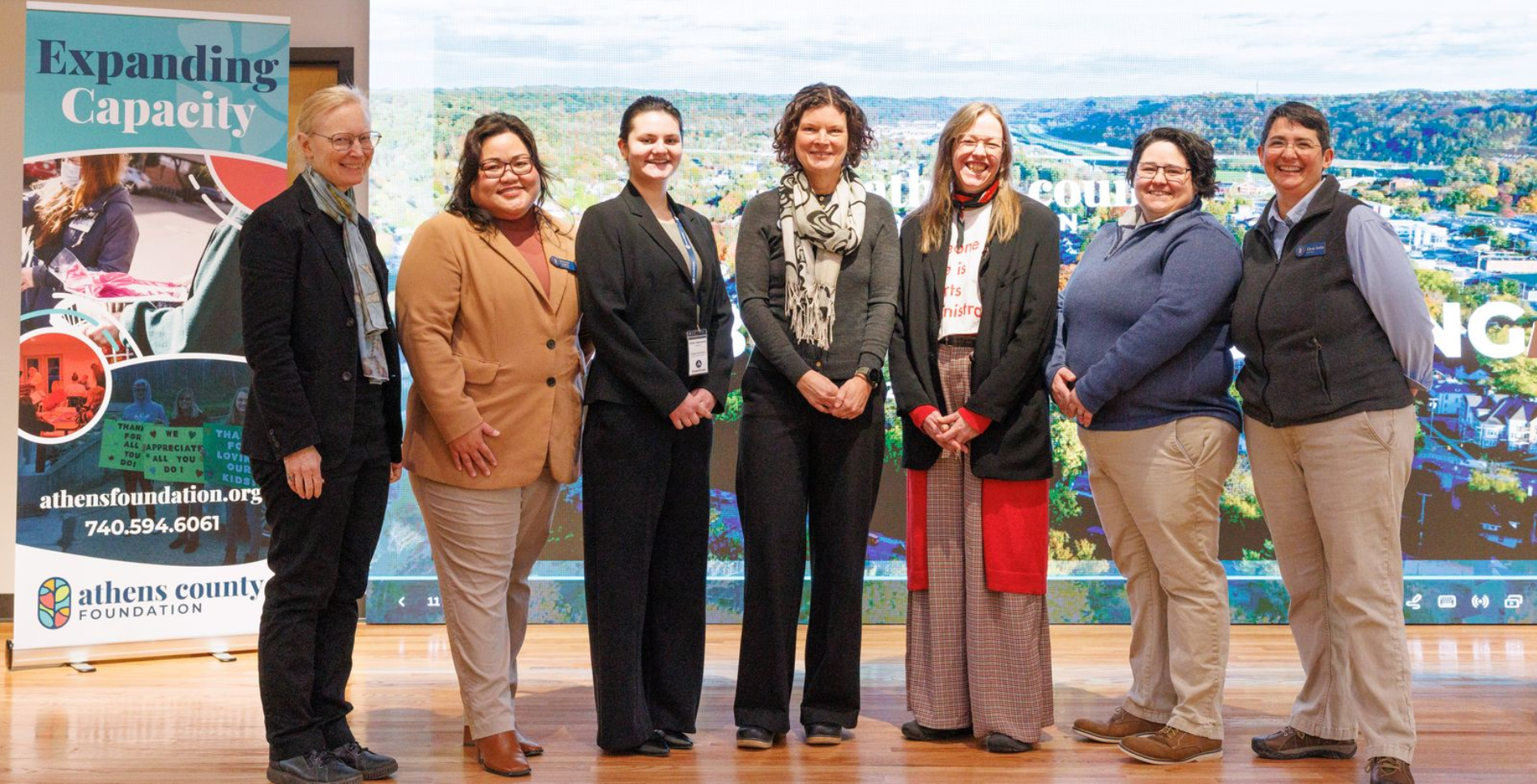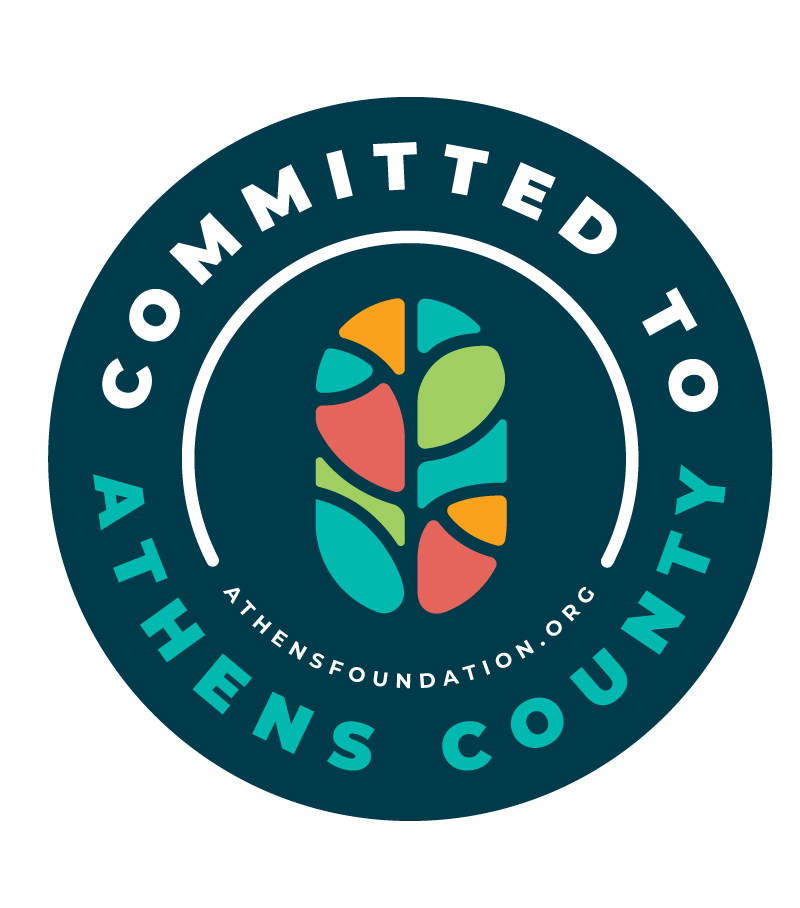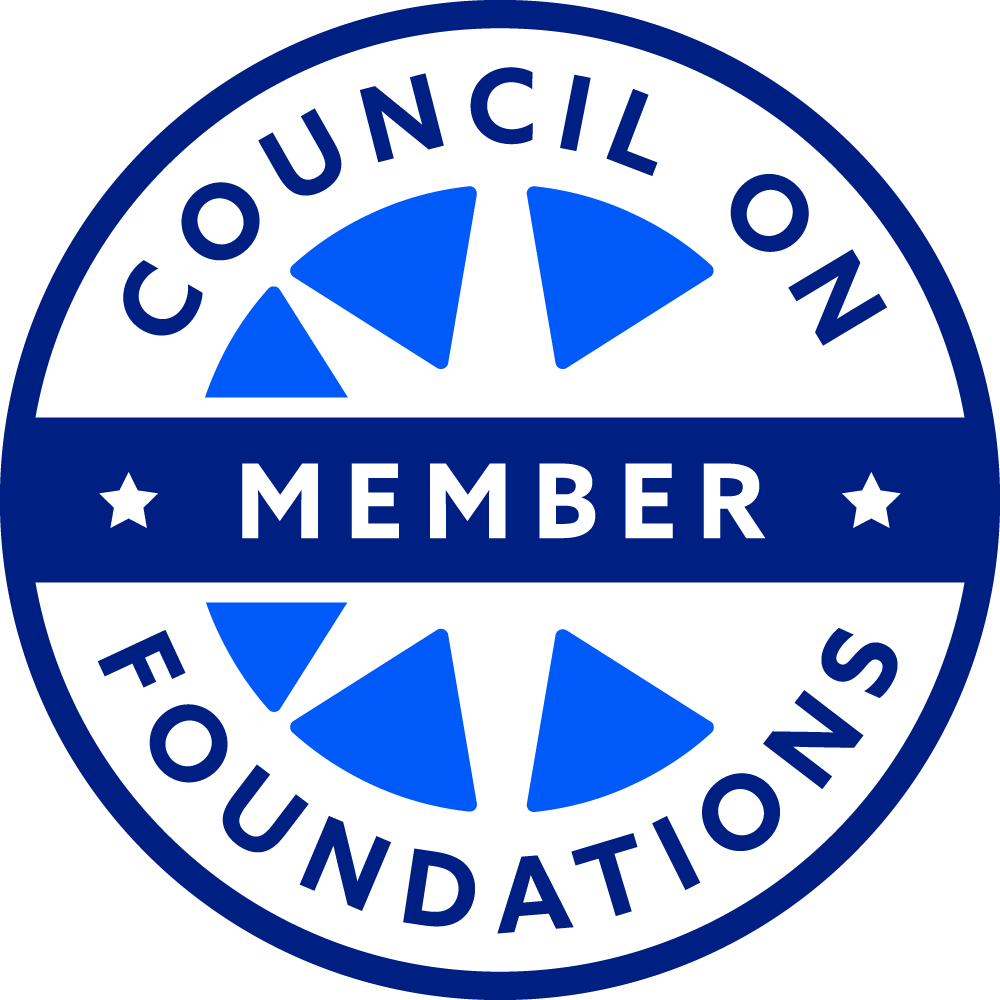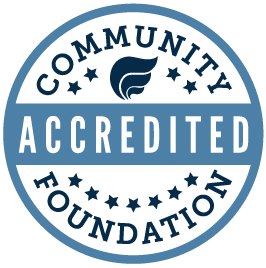Third Nonprofit Leaders Retreat Connects and Inspires
Local nonprofit directors – “unicorns” – talk community, funding
Nonprofit leaders from Athens County gathered on April 16 to connect and brainstorm with one another. Themes that emerged from the daylong retreat included a strong sense of community, inclusivity, interdependence, and the challenges of uncertain funding.
Sponsored by the Athens County Foundation (ACF), executive directors from 20 nonprofits across fields gathered at Stuart’s Opera House to enhance a connected web of community leaders. The gathering served to seek ways to increase individual and organizational capacity and plan a collective story of community mission.
Creating a thriving community
“We’re the civic infrastructure,” said Megan Riddlebarger, executive director of the Corporation for Ohio Appalachian Development, whose mission is to improve the quality of life for those in Appalachian Ohio. “(It’s) the idea of bringing people from a place of need and suffering to a place of participation and brings up people’s skill level in a way that’s flexible and meaningful.”
Many participants echoed the idea that the local nonprofit sector is critical to the community in Athens County. ACF executive director Kerry Pigman noted that while an organization’s work may seem targeted at a particular population, when it’s done well that work has a ripple effect that makes the community whole and healthy.
Solid Ground School director Christin Butler added, “Human thriving and community thriving is complex … An individual thrives within a thriving community, and a community thrives with individuals.”
Nate Thomson is executive director of the Athens Photo Project, which uses photography as a tool for mental health recovery. He also emphasized the importance of a truly inclusive community. “Mental health and mental wellbeing really requires being part of community, and requires contributing to community,” he said.
Participants talked about an asset-based approach to community development, whether those assets are natural resources, organizational capacity or human capital. Daniel Rogers, executive director of Kids on Campus, said, “So many of the times our kids in our communities are looked at with a deficit mentality … Kids are assets, not obstacles.”
Directors also discussed the “With, not for” approach in which a community is not told by leaders what they need, but rather directs the programming intended to benefit them. Leaders discussed holding more listening sessions in the community to better learn what the community wants.
Challenges of being a nonprofit leader
Nonproft AF blogger Vu Le describes nonprofit leaders as magical unicorns, people who choose to make the world a better place rather than taking higher-pay, higher-prestige jobs that don’t have the social impact as nonprofit work does. While the retreat had some self-care components like chair massage and yoga, the ability to share the challenges of being an executive director with one another proved to be a balm in and of itself.
“I would love people to know how much physical and psychic work there is behind what looks easy and joyful,” said Patty Mitchell, director and founder of Passion Works Studio, which provides employment, opportunity and a sense of creative purpose for people with developmental differences.
Kelly Madewell, executive director of My Sister’s Place domestic violence agency agreed, adding, “The truth is that we are juggling a lot every day that the community does not see and probably does not want to see.”
Dairy Barn Arts Center executive director Leah Magyary echoed this sentiment as well, noting that sometimes the public can take for granted all of the unseen work in the nonprofit sector.
But none of the challenges blunt the enthusiasm for the work or the mutual respect that the leaders have for one another. “We don’t just do what we do to get a paycheck,” said Boone Troyer, executive director of Visit Athens County, “Everyone is taking it one step further and completely committed to all aspects of the work, not just the main mission.”
Jack Pepper, administrator of the Athens City County Health Department, used one word to describe the day’s cohort: dedicated. “There’s just an extraordinary amount of dedication in this room,” he said.
(Social) return on investment
Another recurring theme at the retreat was the fact that the nonprofit sector in Athens County has a large, positive economic impact. Nick Tepe, director of Athens County Public Libraries, pointed to figures that show every tax dollar invested in public library systems in Ohio produces three dollars in return.
ACF’s Pigman added, “All of our organizations together are an economic engine for Athens County. Our organizations employ a lot of people, provide resources for people who are shopping in stores, renting apartments. If those things go away, a lot of things that everyone in our community values go away.”
A concept that is new to the public that these directors have known about for years is the concept of social return on investment. While return on investment (ROI) measures the monetary profits of an investment, social return on investment (SROI) measures the broader range of impacts, like social and environmental impacts, and assigns a dollar amount to those as well.
Passion Works engaged on an SROI report with Ohio University’s Voinovich School of Leadership and Public Service. “I have been so grateful for Voinovich to have a report to hand to a donor or a friend to the studio. $8.2 million is the effect of the studio on our region,” Passion Works’ Mitchell said.
Ari Faber, acting executive director of United Campus Ministries, noted that while UCM feeds scores of people every week through its free meals program, “Our meals that we serve are not just about food insecurity. They are also about leadership and about building community and combating social isolation.”
Tanya Hire, market manager for the Athens Farmers Market, said, “I really like our tagline, ‘Nourishing Community Since 1972’ … When you talk about nourishing, of course it’s the food, the nutrition. We also nourish the community … people come there to meet their friends, they meet their families.”
Funding challenges
The executive directors did not shy away from the challenges they face, primarily funding. The libraries’ Tepe said, “We have an amazingly strong and interwoven community, but that should not stop us from looking at the challenges we are facing and thinking about collectively the really hard work it takes to face those challenges. This group gets it.”
Many of the social services offered in Athens County are state or federally funded in one way or another, whether it’s Medicaid, community development block grants or something else.
“The primary constraint that our school faces is not in the knowledge or the skill of the practitioners or educators, or participants and community members,” Solid Ground School’s Butler said, “The primary constraint is the complex nature of school funding and how it reflects the socioeconomic realities of society at large.”
Pepper from the health department said, “I want our community to know how much I value them. Because the bulk of our funding comes from the taxpayers in Athens County. If our levies go away tomorrow, I lose half of our budget that runs the Athens City County Health Department.”
Small, bold steps
The group brainstormed next steps they can collectively take to strengthen and enhance their organizations, individually and collectively. Primary ideas that came from the session included attending one another’s events, collectively sharing data and stories for the organizations as a whole, a mentorship program to match EDs for deeper learning, a place for shared communication like a listserv, and formalizing a shared services program.
ACF, in partnership with the public libraries, will continue the group through a monthly lunch meeting the second Wednesday of each month at the Athens Public Library. The next meeting is scheduled for July 9.
Participants left with a renewed sense of belonging and mutual purpose. “What came out of this for me is, live locally,” Hire from the farmers market said, “Your life is centered and grounded here.”
Sarah Grace, executive director of Community Food Initiatives, quoted a similar sentiment from mentor Leslie Schaller: “The future is local.”
Articles by Category
Stories of Collaboration and Belonging
Annual Business Meeting
The Athens County Foundation (ACF) invites you to our Annual Business Meeting on January 29, 2026. This event is our opportunity to reflect on the business achievements and milestones accomplished during Fiscal Year 2025 and share our plans for the year ahead.
Click on 01 for more information and to RSVP
Tax Law Update
We want to share with you this useful article from Pro Bono Partnership of Ohio which includes a summary of IRS rules, sample written acknowledgments, and helpful links.
Click on 02 for Pro Bono article
Civic Experiment Grant
Civic Experiments are local projects introducing new, sometimes unexpected or informal, civic opportunities in our communities. Civic Experiment grants are small (5,000-$15,000), 1-year programmatic grants. All Civic Experiments must be conducted in Athens County. Portal is open now-January 30
Click on 03 for more information
Strengths + Strengths
Strengths+Strengths is a special initiative designed to provide nonprofit organizations throughout Athens County with access to professional resources, expert insights, and leading best practices. The goal is to help those who do good do even better. Join us February 11 at noon at the Athens Public Library for the nonprofit Leaders Lunch
Click on 04 for more information

